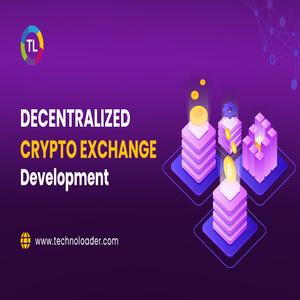Decentralized Finance Meets API Innovation: A New Era
The decentralized finance (DeFi) ecosystem is revolutionizing the financial landscape, offering open, permissionless access to various financial services. APIs (Application Programming Interfaces) are key enablers of this transformation, fostering seamless interaction between platforms and empowering developers to build groundbreaking solutions. Together, DeFi and API innovation are unlocking a new era of financial technology, driving accessibility, efficiency, and transparency.
The Role of APIs in DeFi
APIs are essential building blocks in software development, enabling systems to communicate and exchange data. In DeFi, APIs facilitate interaction with blockchain protocols, data retrieval, and transaction execution.
Key Roles of APIs in DeFi:
Data Access: APIs provide real-time blockchain data, including token prices and transaction histories.
Protocol Interaction: APIs enable seamless staking, lending, borrowing, and trading interactions.
Automation: APIs automate workflows like yield farming and liquidity management.
Interoperability: APIs connect different DeFi platforms, creating cohesive ecosystems.
How API Innovation Impacts DeFi
APIs are reshaping DeFi operations by enhancing efficiency, user experiences, and innovation.
Enhanced User Experiences: APIs enable user-friendly interfaces with real-time functionalities. For instance, wallet APIs let users connect wallets to DeFi protocols for instant transactions.
Simplified Development: Developers can integrate DeFi functionalities without complex infrastructure using APIs like trading APIs to build decentralized exchanges (DEXs).
Real-Time Data Analysis: APIs such as The Graph provide real-time blockchain data, empowering informed decision-making for developers and investors.
Improved Interoperability: Cross-chain APIs bridge blockchains like Ethereum and Binance Smart Chain, enhancing platform connectivity and user access.
Use Cases for APIs in DeFi
APIs are unlocking new opportunities in the DeFi ecosystem:
Automated Trading Bots: APIs enable bots to execute trades based on predefined rules, maximizing profits and reducing human error.
Yield Aggregators: APIs pull data from multiple protocols, optimizing yield farming strategies and automating compounding for better returns.
Cross-Chain Platforms: APIs facilitate interaction between DeFi platforms across blockchains, reducing fragmentation and enhancing liquidity.
Lending and Borrowing Protocols: APIs streamline collateral management and interest calculations, making lending transparent and efficient.
Leading APIs Driving DeFi Innovation
Chainlink API: Provides decentralized oracles for off-chain data.
Uniswap API: Offers real-time trading data and liquidity metrics.
Aave API: Simplifies interaction with lending and borrowing protocols.
The Graph API: Decentralized querying service for blockchain data visualization.
1inch API: Aggregates DEX trading rates for optimal order routing.
Benefits of Combining DeFi and APIs
The synergy between DeFi and APIs offers significant advantages:
Scalability: Integrate multiple protocols effortlessly.
Cost Efficiency: Reduce development costs with pre-built functionalities.
Accessibility: Make DeFi services user-friendly.
Security: Trusted APIs come with robust security protocols.
Innovation: Foster new services like robo-advisors and DeFi insurance.
Overcoming Challenges
Standardization: Use APIs with comprehensive documentation.
Security Risks: Implement token-based authentication and use reputable APIs.
Cross-Chain Compatibility: Leverage APIs designed for interoperability.
Future Trends
Cross-Chain APIs: Seamless blockchain connectivity.
AI Integration: Predictive analytics and automation.
Regulatory APIs: Simplify compliance processes.
NFT APIs: Enable NFT creation and trading within DeFi.
DeFi Payment APIs: Support seamless payments in DeFi.
Conclusion
The convergence of DeFi and APIs is ushering in a new financial era. By leveraging API innovations, developers and businesses can create accessible, efficient, and secure platforms to cater to a global audience. Partnering with experienced blockchain development services ensures staying at the forefront of the DeFi revolution, unlocking endless opportunities in the digital economy.
Visit :
https://justtrytech.com/decentralized-exchange-development/
#cryptodevelopmentcompany #cryptoexchange development
#decentralizedcryptodevelopmentDecentralized Finance Meets API Innovation: A New Era
The decentralized finance (DeFi) ecosystem is revolutionizing the financial landscape, offering open, permissionless access to various financial services. APIs (Application Programming Interfaces) are key enablers of this transformation, fostering seamless interaction between platforms and empowering developers to build groundbreaking solutions. Together, DeFi and API innovation are unlocking a new era of financial technology, driving accessibility, efficiency, and transparency.
The Role of APIs in DeFi
APIs are essential building blocks in software development, enabling systems to communicate and exchange data. In DeFi, APIs facilitate interaction with blockchain protocols, data retrieval, and transaction execution.
Key Roles of APIs in DeFi:
Data Access: APIs provide real-time blockchain data, including token prices and transaction histories.
Protocol Interaction: APIs enable seamless staking, lending, borrowing, and trading interactions.
Automation: APIs automate workflows like yield farming and liquidity management.
Interoperability: APIs connect different DeFi platforms, creating cohesive ecosystems.
How API Innovation Impacts DeFi
APIs are reshaping DeFi operations by enhancing efficiency, user experiences, and innovation.
Enhanced User Experiences: APIs enable user-friendly interfaces with real-time functionalities. For instance, wallet APIs let users connect wallets to DeFi protocols for instant transactions.
Simplified Development: Developers can integrate DeFi functionalities without complex infrastructure using APIs like trading APIs to build decentralized exchanges (DEXs).
Real-Time Data Analysis: APIs such as The Graph provide real-time blockchain data, empowering informed decision-making for developers and investors.
Improved Interoperability: Cross-chain APIs bridge blockchains like Ethereum and Binance Smart Chain, enhancing platform connectivity and user access.
Use Cases for APIs in DeFi
APIs are unlocking new opportunities in the DeFi ecosystem:
Automated Trading Bots: APIs enable bots to execute trades based on predefined rules, maximizing profits and reducing human error.
Yield Aggregators: APIs pull data from multiple protocols, optimizing yield farming strategies and automating compounding for better returns.
Cross-Chain Platforms: APIs facilitate interaction between DeFi platforms across blockchains, reducing fragmentation and enhancing liquidity.
Lending and Borrowing Protocols: APIs streamline collateral management and interest calculations, making lending transparent and efficient.
Leading APIs Driving DeFi Innovation
Chainlink API: Provides decentralized oracles for off-chain data.
Uniswap API: Offers real-time trading data and liquidity metrics.
Aave API: Simplifies interaction with lending and borrowing protocols.
The Graph API: Decentralized querying service for blockchain data visualization.
1inch API: Aggregates DEX trading rates for optimal order routing.
Benefits of Combining DeFi and APIs
The synergy between DeFi and APIs offers significant advantages:
Scalability: Integrate multiple protocols effortlessly.
Cost Efficiency: Reduce development costs with pre-built functionalities.
Accessibility: Make DeFi services user-friendly.
Security: Trusted APIs come with robust security protocols.
Innovation: Foster new services like robo-advisors and DeFi insurance.
Overcoming Challenges
Standardization: Use APIs with comprehensive documentation.
Security Risks: Implement token-based authentication and use reputable APIs.
Cross-Chain Compatibility: Leverage APIs designed for interoperability.
Future Trends
Cross-Chain APIs: Seamless blockchain connectivity.
AI Integration: Predictive analytics and automation.
Regulatory APIs: Simplify compliance processes.
NFT APIs: Enable NFT creation and trading within DeFi.
DeFi Payment APIs: Support seamless payments in DeFi.
Conclusion
The convergence of DeFi and APIs is ushering in a new financial era. By leveraging API innovations, developers and businesses can create accessible, efficient, and secure platforms to cater to a global audience. Partnering with experienced blockchain development services ensures staying at the forefront of the DeFi revolution, unlocking endless opportunities in the digital economy.
Visit :
https://justtrytech.com/decentralized-exchange-development/
#cryptodevelopmentcompany #cryptoexchange development #decentralizedcryptodevelopment








